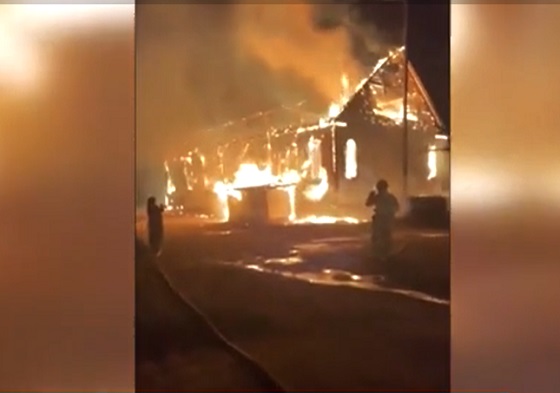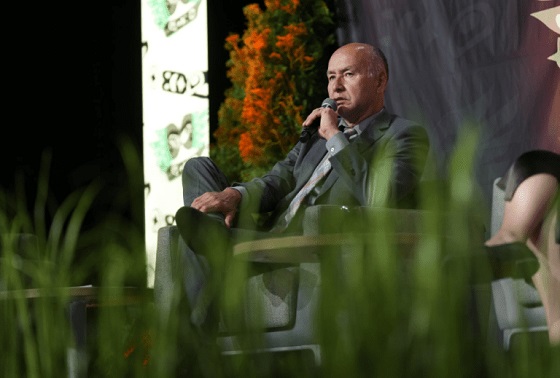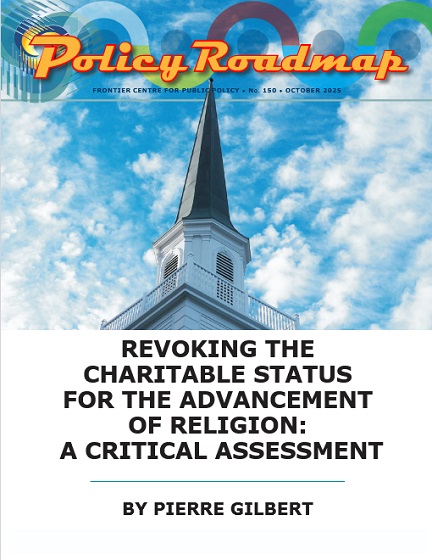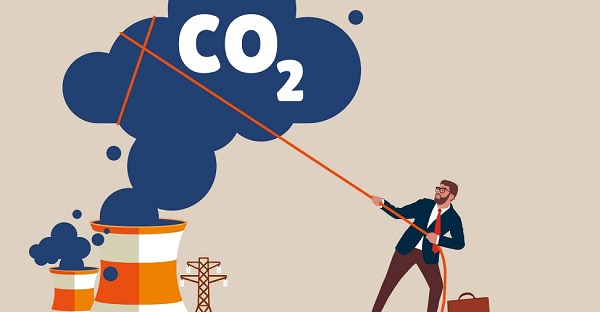Indigenous
Constitutional lawyer calls for ‘false’ claims to end in Canadian residential schools burials

From LifeSiteNews
Justice Centre for Constitutional Freedoms founder John Carpay said unsubstantiated claims foster a hatred that led to churches being destroyed by arson, vandalized and desecrated.
One of Canada’s top constitutional lawyers blasted what he said are “false” and “virtue-signaling” displays of “truth and reconciliation” goals pushed by the federal government and media when it comes to indigenous “land acknowledgments.”
In a recent opinion piece, John Carpay, founder and president of the Justice Centre for Constitutional Freedoms (JCCF), said the “unsubstantiated claim” that thousands of indigenous kids were buried and disregarded by Catholic priests and nuns who ran some Canadian residential schools must be countered.
“Truth and reconciliation are goals worth pursuing,” wrote Carpay, adding, “which is why all Canadians, whether Aboriginal or non-Aboriginal, should not settle for the hypocritical virtue-signaling displayed through land acknowledgments.”
“Nor should we embrace false claims that foster division, or race-based laws that generate strife,” he noted.
In 2021 and 2022, the mainstream media ran with inflammatory and dubious claims that hundreds of children were buried and disregarded by Catholic priests and nuns who ran some Canadian residential schools. The reality is, after four years, there have been no mass graves discovered at residential schools.
However, as the claims went unfounded, since the spring of 2021, over 120 churches, most of them Catholic, many of them on indigenous lands that serve the local population, have been burned to the ground, vandalized, or defiled in Canada.
Carpay observed how the “inflammatory assertion” of the graves claims was based on ground penetrating radar, “which can only locate soil disturbances beneath the ground, and cannot locate human remains.”
He noted that the only way to find out for certain is for “excavation” to take place, to uncover the “truth.”
To date, the reality, as stated by Carpay, is “no field work has been conducted.”
“Rather, this unsubstantiated claim fosters the hatred that was on display when, following the May 2021 allegation, dozens of churches in Canada were burned and destroyed by arson, with dozens more vandalized and desecrated,” he said.
As reported by LifeSiteNews, retired Manitoba judge Brian Giesbrecht said in October 2024 that Canadians are being “deliberately deceived by their own government” after blasting the now former federal government of Justin Trudeau for “actively pursuing” a policy that blames the Catholic Church for the unfounded “deaths and secret burials” of Indigenous children.
Carpay noted how the Department of Crown-Indigenous Relations has “censored all details of what became of” some $12.1 million the k’emlúps te Secwe̓pemc First Nation received to conduct yet to be done excavations.
“This strongly suggests — but does not prove — that the claim about buried bodies is false,” Carpay wrote.
“Do the Tk’emlúps te Secwe̓pemc fear embarrassment and humiliation if an excavation fails to turn up the remains of 215 children? Where is their respect for the taxpayers’ money that was provided to them for a specific purpose? How is this refusal to conduct an excavation helpful to the goal of reconciliation?”
Carpay: ‘True’ reconciliation will only come once laws based on race or ancestry are ‘abolished’
Residential schools, although run by both the Catholic Church and other Christian churches, were mandated and established by the federal government. They were in operation from the late 19th century until the last school closed in 1996.
While some children did tragically die at the once-mandatory boarding schools, evidence has revealed that many of the children passed away as a result of unsanitary conditions due to underfunding by the federal government, not the Catholic Church.
Carpay said the only way for reconciliation among Canadians to happen is if everyone to truly has equal status under the law.
“Ultimately, true reconciliation among Canadians can only be achieved after we have abolished laws that are based on race, ethnicity, ancestry, or descent,” he wrote.
“When some Canadians — based on their ancestry or descent — have special, different, or superior rights, it necessarily leads to friction, strife, and resentment.”
Carpay added that the “best way” to achieve reconciliation is for all “Canadians to pay the same taxes, for all Canadians to have equal access to public spaces, for all Canadians to enjoy the same hunting and fishing opportunities, and for all Canadians to be equal before the law.”
“Anything else is, quite simply, racist,” he added.
Recent polling has shown that over two-thirds of Canadians want some kind of proof of the “unmarked graves” before believing the claims that Indigenous children were secretly murdered and buried at residential schools by Catholic clergy.
Energy
Indigenous Communities Support Pipelines, Why No One Talks About That

John Desjarlais of the Indigenous Resource Network and Norway PM Jonas Gahr at 2024 Arctic Frontiers Conference
From the Frontier Centre for Public Policy
Many Indigenous communities support pipelines and resource projects—but their voices are often drowned out by noisy activists and media narratives. Engineer and policy expert John Desjarlais, who works closely with First Nations, explains what Indigenous communities actually want and why their perspectives are ignored. Projects like Cedar LNG and Woodfibre LNG show Indigenous leadership and co-governance in action. Natural resources are foundational for Canada—and his vision might surprise you. (45 minutes)
Energy
In the halls of Parliament, Ellis Ross may be the most high-profile advocate of Indigenous-led development in Canada.

From Resource Works
“We’re not talking about reconciliation anymore…we’re talking about prosperity, and making sure it lasts.”
Ellis Ross stepped onto the stage at the Vancouver Convention Centre last year. He didn’t reach for notes, and spoke plainly to the audience of business leaders, chiefs, and policymakers gathered for the Indigenous Partnerships Success Showcase (IPSS).
“I’m very proud to say that my band, the Haisla Band, is no longer talking about unemployment, poverty, reconciliation,” Ross said. “We’re talking about the management of wealth.”
Ross’s message was equal parts challenge and triumph, and was followed by a standing ovation for a man who has lived the slow climb from the margins to the mainstream. Once a water-taxi operator in Kitamaat Village, he is now one of the country’s most influential Indigenous political figures.
As he returns as a featured guest to this year’s IPSS, Ross embodies the event’s core theme: Shared Prosperity Now.
Born and raised in the Haisla Nation near Kitimat, Ross spent his early life in a community scarred by unemployment and a lack of opportunity.
“We had nothing,” Ross told the Arc Energy Ideas podcast last year. “We were begging for money, begging for infrastructure. We were one of the poorest bands in British Columbia.” Under his leadership, that changed forever.

As Haisla chief councillor from 2011 to 2017, Ross helped transform his community through industry partnerships rooted in resource development. He rejecting the old idea that development was a natural enemy of culture, and steered the Haisla into the energy economy on their own terms by embracing liquefied natural gas (LNG).
The Cedar LNG project, co-owned by the Haisla Nation and Pembina Pipeline, will become the largest Indigenous-majority-owned energy project in Canada’s history.
“It will have one of the lowest carbon footprints in the world,” said Crystal Smith, Ross’ successor as Haisla Chief Councillor. Cedar LNG is scheduled to begin operation in 2028.
For Ross, participation means power.
“If you uplift an Aboriginal community, the biggest beneficiaries, apart from First Nations, are the rest of British Columbia,” he said at IPSS in 2023. “We’ve got no malls or car dealerships on reserves. We spend it in our neighbouring communities.”
Ross’s journey hasn’t been without conflict. Writing in the Times Colonist in 2020, he warned of foreign-funded activists “hijacking our future” by dividing Indigenous communities and undermining resource partnerships.
“The last thing any of us need is intervention from foreign groups that want to hijack our future for their own objectives,” he wrote, condemning the influence of U.S. foundations funnelling money to anti-development campaigns.
He is vehemently opposed to “distraction politics”, and it became a hallmark of Ross’s political career. As MLA for Skeena from 2017 to 2024, Ross built a reputation for straight talk. He was eager to defend both workers and environmental standards for the modern resource industry.

With a pragmatic style, he gained admiration from both business leaders and former premier Christy Clark, who has praised Ross because he “fought for an LNG industry that will be the cleanest, the greenest, and the safest anywhere in the world.”
By early 2024, Ross announced his move to federal politics, saying he wanted to take “the principles I’ve developed over the last 15 years” to Ottawa.
Now the Member of Parliament for Skeena-Bulkley Valley, he’s now one of the most prominent Indigenous voices in the House of Commons, and one of the few with deep experience in both community governance and heavy industry.
Recently, Ross said he plans to hold the federal government to its promise of making Canada an “energy superpower.”
“For the area and for Canada, I want to hold this government accountable for those words,” he told the Prince George Citizen. “Projects like LNG Canada and Cedar LNG can show the world how Indigenous leadership and environmental responsibility go hand in hand.”
Ross’s attendance at IPSS 2025 comes at a moment when Indigenous participation in major projects is reshaping the national economy.
More than two dozen First Nations now hold equity in energy, mining, or infrastructure developments. It is proof that reconciliation, in his view, must be measured not in lofty statements but in actual ownership.
“You’ve got to leave a lot of those old narratives at the door,” he told delegates. “We’re not victims. We’re builders.”
Now, from the carpet of Parliament Hill to the polished floors of the Vancouver Convention Centre, Ellis Ross continues to speak for both the Haisla and the wider coalition of Indigenous and non-Indigenous Canadians who believe in growth through partnership.
As IPSS Event Lead Margareta Dovgal put it, “He bridges worlds—the boardroom, the band office, and the floor of the legislature.”
When Ross steps back onto the IPSS stage this November, expect the same mix of candour and conviction that has defined his career. “
We’re not talking about reconciliation anymore…we’re talking about prosperity, and making sure it lasts.”
-

 Energy2 days ago
Energy2 days agoIndigenous Communities Support Pipelines, Why No One Talks About That
-

 Alberta2 days ago
Alberta2 days agoOil Sands are the Costco of world energy – dependable and you know exactly where to find it
-

 Business2 days ago
Business2 days agoFinance Committee Recommendation To Revoke Charitable Status For Religion Short Sighted And Destructive
-

 Alberta1 day ago
Alberta1 day agoThe Technical Pitfalls and Political Perils of “Decarbonized” Oil
-

 International1 day ago
International1 day agoNumber of young people identifying as ‘transgender’ declines sharply: report
-

 Health1 day ago
Health1 day agoColorado gave over 500 people assisted suicide drugs solely for eating disorders in 2024
-

 National12 hours ago
National12 hours agoDemocracy Watch Renews Push for Independent Prosecutor in SNC-Lavalin Case
-

 Censorship Industrial Complex1 day ago
Censorship Industrial Complex1 day agoCanada’s privacy commissioner says he was not consulted on bill to ban dissidents from internet





